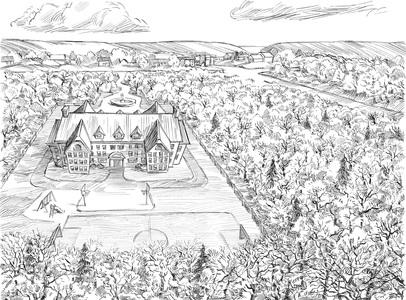Inspiration for Fuzzy Mud
From the Author:

The inspiration for a novel usually has nothing to do with the story itself, but comes from a combination of other events and concerns of mine. This was the case for Fuzzy Mud.
One of the reasons I’ve been writing for children for almost forty years is because I love that the world is still wide open to them. My main characters haven’t become jaded or stuck in their ways, as adult characters might. I appreciate the sense of wonder and earnestness of kids, their joys and sorrows, and all my books have always been very optimistic. If there is a message that links my work, it is that if you stay true to yourself, and persevere, you will succeed.
However, when I set out to write my newest book, I had lost my own sense of optimism. It was reported that world population recently had grown past seven billion, more than double what it was just a half century ago. It seemed to me, that while people are rightly concerned about things like climate change, depletion of ocean habitats, the destruction of the rain forest, giant islands of plastic garbage, etc., that they might be missing the bigger picture; that all these things were just the inevitable result of a world with seven billion people, and that as long as human population continues to increase, all these problems, and more, would only get worse.
So how do you write an optimistic book for kids growing up in such a world? I needed to find an answer if I was to continue to write, and my answer to myself was that I still believed in the individual kids.
More than two thousand years ago, the Greek philosopher, Plato, wrote a dialogue between Socrates and another man in which they discussed the question, “Can virtue be taught?” Such a question probably would be scoffed at in modern society, but I found it fascinating that two thousand years ago, people would have the inclination to consider such a topic. When we’re not watching television or plugged into our computers, human beings are capable of great philosophical thought. And even though there are more than seven billion of us now, each individual child is made up of the same stuff as Plato, or Einstein, or Tolstoy, or whomever it is you most admire.
That was how I approached the creation of my new book which eventually became Fuzzy Mud. Tamaya, the heroine of the novel, goes to a private school, where, in fact, virtue is taught, although nobody but her takes the subject very seriously. Tamaya tries to be virtuous.
This is just a very small aspect of the story, and may go unnoticed by a majority of readers, but it was very important to me. The story itself is a scary adventure about an impending ecological disaster. Tamaya finds herself right in the center of it, and it’s about how this courageous and virtuous character handles the situation.
One of the reasons I’ve been writing for children for almost forty years is because I love that the world is still wide open to them. My main characters haven’t become jaded or stuck in their ways, as adult characters might. I appreciate the sense of wonder and earnestness of kids, their joys and sorrows, and all my books have always been very optimistic. If there is a message that links my work, it is that if you stay true to yourself, and persevere, you will succeed.
However, when I set out to write my newest book, I had lost my own sense of optimism. It was reported that world population recently had grown past seven billion, more than double what it was just a half century ago. It seemed to me, that while people are rightly concerned about things like climate change, depletion of ocean habitats, the destruction of the rain forest, giant islands of plastic garbage, etc., that they might be missing the bigger picture; that all these things were just the inevitable result of a world with seven billion people, and that as long as human population continues to increase, all these problems, and more, would only get worse.
So how do you write an optimistic book for kids growing up in such a world? I needed to find an answer if I was to continue to write, and my answer to myself was that I still believed in the individual kids.
More than two thousand years ago, the Greek philosopher, Plato, wrote a dialogue between Socrates and another man in which they discussed the question, “Can virtue be taught?” Such a question probably would be scoffed at in modern society, but I found it fascinating that two thousand years ago, people would have the inclination to consider such a topic. When we’re not watching television or plugged into our computers, human beings are capable of great philosophical thought. And even though there are more than seven billion of us now, each individual child is made up of the same stuff as Plato, or Einstein, or Tolstoy, or whomever it is you most admire.
That was how I approached the creation of my new book which eventually became Fuzzy Mud. Tamaya, the heroine of the novel, goes to a private school, where, in fact, virtue is taught, although nobody but her takes the subject very seriously. Tamaya tries to be virtuous.
This is just a very small aspect of the story, and may go unnoticed by a majority of readers, but it was very important to me. The story itself is a scary adventure about an impending ecological disaster. Tamaya finds herself right in the center of it, and it’s about how this courageous and virtuous character handles the situation.
